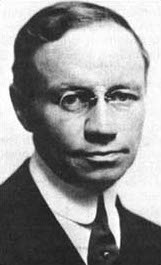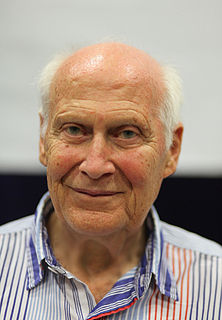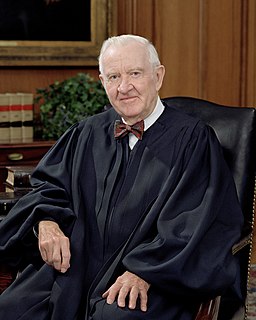A Quote by May Sarton
What frightens me about America today is that in the large majority there is no active sense of the value of the individual: few citizens feel that they are the Republic, responsible for what happens. And when the individual in a democracy ceases to feel his importance, then there is grave danger that he will give over his freedom, if not to a Fascist State, then to the advertising men or Publicity Agents or to the newspaper he happens to read.
Related Quotes
The democratic ideal springs from the ideas of liberty, equality, majority rule through free elections, protection of the rights of minorities, and freedom to subscribe to multiple loyalties in matters of religion, economics, and politics rather than to a total loyalty to the state. The spirit of democracy is the idea of importance and worth in the individual, and faith in the kind of world where the individual can achieve as much of his potential as possible.
We'd like to just write nothing but lyric poetry. The trouble is, the individual is going along intent on his own personal gratifications and love affairs and financial affairs and everything else. But loping alongside him is this fascist lout who keeps trying to take over. And if you keep ignoring him, he gets bigger and bigger, so every once in a while the free individual has to turn away from his private pursuits and give this fascist lout a few clouts, and beat him down to size.
Democracy maintains that government is established for the benefit of the individual, and is charged with the responsibility of protecting the individual, and is charged with the responsibility of protecting the rights of the individual and his freedom in the exercise of his abilities. Democracy is based on the conviction that man has the moral and intellectual capacity, as well as the inalienable right, to govern himself with reason and justice.
The freedom of an individual depends upon that individual's freedom to alter his considerations of space, energy, time and life and his roles in it. If he cannot change his mind about these, he is then fixed and enslaved amidst barriers such as those of the physical universe, and barriers of his own creation. Man thus is seen to be enslaved by barriers of his own creation. He creates these barriers himself, or by agreeing with things which hold these barriers to be actual.
But if we are to retain freedom, then we can only do so by keeping the determining mass of the citizens the possessors of property with personal control over it, as individuals or as families. For property is the necessary condition of economic freedom in the full sense of that term. He that has not property is under economic servitude to him who has property, whether the possessor of it be another individual or the State.
The individual man, in introspecting the fact of his own consciousness, also discovers the primordial natural fact of his freedom: his freedom to choose, his freedom to use or not use his reason about any given subject. In short, the natural fact of his "free will." He also discovers the natural fact of his mind's command over his body and its actions: that is, of his natural ownership over his self.
The majority of men cannot be made disinterested for life by exhortation, by religious services, by any expenditure of subsidized works, or even by grave and manifest public need. They can be made permanently unselfish only by being helped to become disinterested in their individual purposes. In the complete democracy a man must in some way be made to serve the nation in the very act of contributing to his own individual fulfillment. Not until his personal action is dictated by disinterested motives can there be any such harmony between private and public interests.
It is possible that an individual may be successful, largely because he conserves all his powers for individual achievement and does not put any of his energy into the training which will give him the ability to act with others. The individual acts promptly, and we are dazzled by his success while only dimly conscious of the inadequacy of his code.
The real transgression occurs when religion wants government to tell citizens how to live uniquely personal parts of their lives. The failure of Prohibition proves the futility of such an attempt when a majority or even a substantial minority happens to disagree. Some questions may be inherently individual ones, or people may be sharply divided about whether they are. In such cases, like Prohibition and abortion, the proper role of religion is to appeal to the conscience of the individual, not the coercive power of the state.
When the family has been brought into its natural order, the individual can leave it behind him while still feeling the strength of his family supporting him. Only when the connection to his family is acknowledged, and the person's responsibility seen clearly and then distributed, can the individual feel unburdened and go about his personal affairs without anything from the past weighing him down or holding him back.
The individual in the ordinary circumstances of living may feel more unreal than real; in a literal sense, more dead than alive; precariously differentiated from the rest of the world, so that his identity and autonomy are always in question.... He may not possess an over-riding sense of personal consistency or cohesiveness. He may feel more insubstantial than substantial, and unable to assume that the stuff he is made of is genuine, good, valuable. And he may feel his self as partially divorced from his body.
We hear much nowadays as to the speculative ideas of men concerning the condition beyond the grave; but the admission that there is an individual existence beyond the grave, is a declaration that there must have been an individual, intelligent creation before we came here in the flesh. Life beyond the grave postulates a pre-existent state.







































